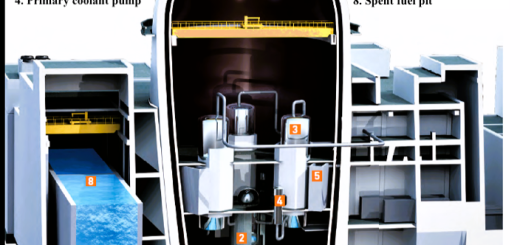Basic Energy Plan Formulated for the First Time since the Great East Japan Earthquake Disaster Nuke Info Tokyo No. 160
On April 11, the Japanese cabinet approved the new Basic Energy Plan. The Plan, originally proposed by Liberal Democratic Party (LDP) and New Komeito Party Diet members who are considered to be pro-nuclear power, is formulated by the government on the basis of the 2002 Basic Energy Act. The original motivation of the establishment of the act was that the Diet members who considered that nuclear power plant construction would become more difficult due to advances in the deregulation of the power industry could put the brakes on deregulation by deemphasizing it with respect to the need for a stable supply of energy and environmental suitability.
Specifically, the Advisory Committee on Energy and Natural Resources, a consultative body of the Minister of Economy, Trade and Industry held meetings to formulate the Plan and the proposal put forward by the Advisory Committee became the government’s plan. The Plan was first formulated in 2003, and revised in 2007 and 2010.
As the Fukushima nuclear accident had occurred in March 2011, however, it became necessary to revise the Plan since implementation of the existing pro-nuclear power Plan had become problematical. In October of that year, the Advisory Committee on Energy and Natural Resources set up a Fundamental Issues Subcommittee, which began deliberations. After deliberations in the Committee, a call for public comments, public hearings and a deliberative poll, in September 2012 the Democratic Party of Japan (DPJ), the governing party at the time, released its “Innovative Strategy for Energy and the Environment,” which called for “putting all available policy resources into achieving zero nuclear power in the 2030s” (Nuke Info Tokyo 151, The Innovative Strategy for Energy and Environment and its future).
Dissatisfied with this policy, the chairperson of the Fundamental Issues Subcommittee, Akio Mimura, invalidated the functioning of the Committee by abolishing it until the change of government to the LDP/New Komeito alliance, and altering the location of the formulation of the Basic Plan by establishing a new Strategic Policy Committee with fewer members committed to a nuclear phaseout. The “Opinion on the Basic Energy Plan” finalized by the new subcommittee in December 2012 reversed policy back to support for nuclear power.
Thus it was stated that “the use of nuclear power is to continue as the important base load power forming the basis of support for a stable energy supply and demand structure.” The plan also called for “the promotion of restarts of nuclear power plants whose safety has been confirmed by the Nuclear Regulation Authority.”
It was perhaps considered that this overly explicit mode of expression was unwise from a public relations point of view. The approved Basic Energy Plan, with some consideration for the pro-nuclear power group within the governing parties, toned down the pro-nuclear rhetoric by deleting the phrase “the use of nuclear power is to continue,” and employed standard power industry terminology by stating that nuclear power was to be “the important base load power contributing to the stability of the energy supply and demand structure,” Nuclear power plant restarts were also to “respect the judgment” of the Nuclear Regulation Authority. Furthermore, the introduction to the Plan emphasizes “a reduction in dependence on nuclear power as far as is possible.”
Nevertheless, the Plan does in fact “promote” nuclear power. “A reduction in dependence” does not mean a complete nuclear phaseout, and there is no indication about how far the reduction might go. Far from it, the construction of new nuclear power plants is mooted under the pretext of “replacing (old) nuclear power plants with safer ones.” It is reported in the media that these are all clearly stated in the original proposal for the “Opinion on the Basic Energy Plan” drawn up by the Advisory Committee on Energy and Natural Resources, later toned down to read “will clarify the scale (of nuclear power generation) to be secured.” Even so, this would still allow the construction of new nuclear power plants. At the same time, aged plants that would cost too much to refurbish to meet the new safety standards would have to be decommissioned, necessitating the construction of new plants to secure the required scale of power generation.
Looking at the nuclear fuel cycle, the 2010 Basic Energy Plan stated that “The nuclear fuel cycle for effective use of plutonium, uranium and so on recovered by reprocessing spent fuel is necessary to further raise the competitive edge of nuclear power generation, and in the future will be firmly promoted as a robust state strategy that ‘will not be altered for the mid-term future.’” In the new Plan, this has changed to “In order to resolve the issues involved in the disposal of spent fuel and to alleviate the risks and burdens for future generations, the role of the fuel cycle will be to reduce the volume of high-level radioactive waste, reduce its degree of toxicity and contribute to the effective use of resources. Reprocessing, pluthermal generation and other efforts will be promoted with sufficient consideration for previous activities, efforts being made while continuing to gain the understanding of the related local governments and the international community.”
Spent fuel has transformed from a source for “raising the competitive edge” of nuclear power to an “issue” that has to be resolved. The term “fast breeder reactor” has disappeared and is no longer a development goal. R&D on a “fast reactor” through international cooperation is mentioned, but there is no plan for a new reactor to be constructed inside Japan. Monju has been “positioned as an international research base for the reduction of the volume of nuclear wastes, the reduction of toxicity, and the advancement of technologies and so on related to nuclear non-proliferation.”
As a document, the completed Basic Energy Plan is not realistic. As with former Plans, it will immediately be consigned to the dustbin of wishful thinking.
(Baku Nishio, Co-director of CNIC)

